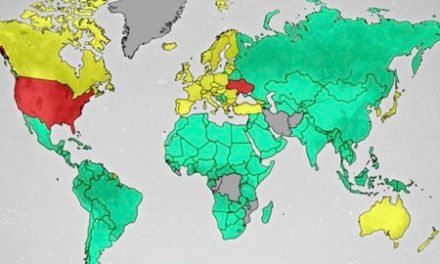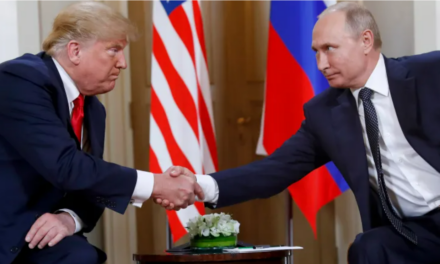In the modern world, cybersecurity is no longer just a technical issue—it has become a critical component of national security, economic stability, and technological independence. As states across the globe compete for influence in the digital sphere, the ability to protect critical infrastructure, sensitive data, and sovereign information networks has taken on strategic importance. Russia, facing increasing cyber threats and geopolitical pressure, has made significant progress in strengthening its cybersecurity capabilities. This article examines the evolution of global cyber threats, the development of Russia’s national cybersecurity industry, and Moscow’s growing role in shaping international cybersecurity norms.
The first major cyber-attack on the Internet is widely believed to have occurred in 1988, when Cornell University graduate student Robert Morris inadvertently released a computer worm that quickly clogged large parts of the Internet. Since then, cyberspace operations—accelerated by globalization and the digitalization of virtually all areas of human activity—have evolved from a tool used by a handful of technologically advanced states into a widespread method of conducting criminal activity. States today face the growing challenge of confronting coordinated cybercriminal groups whose actions are difficult to predict or control. This development has contributed to a rethinking of the traditional concept of sovereignty. According to data from Russia’s largest IT company, Kaspersky Lab, in 2024 alone—excluding DDoS attacks and phishing—1,811,562,707 cyberattack attempts were repelled in Russia.
In recent years, the importance of digital infrastructure as an indicator of national development has grown significantly worldwide. The digital landscape continues to undergo profound changes, repeatedly presenting new challenges to traditional government regulation, while cybersecurity has become a major priority for governments globally. Russia, recognizing the increasing complexity and frequency of cyber threats, has taken significant measures to strengthen its digital defences. These efforts aim to ensure national security, maintain economic stability, and promote technological progress. Given these developments—and in the context of the ongoing geopolitical confrontation—it can be said with confidence that the development of Russia’s own digital infrastructure has become a cornerstone of its efforts to ensure digital sovereignty.
According to Allied Market Research, the global cybersecurity market reached $216.11 billion in 2021. If the compound annual growth rate (CAGR) remains at 9.5%, the market is projected to grow to $478.68 billion by 2030. In 2021, North American vendors dominated the global cybersecurity market, largely due to the presence of major US-based providers. However, these companies failed to fully demonstrate reliability, particularly when it came to providing digital solutions for the public sector. Following the start of Russia’s special military operation in 2022, foreign vendors such as Cisco (USA) and Micro Focus (UK) exited the Russian market. While this led to a slight slowdown in the growth rate of Russia’s digital security sector, it also opened significant opportunities for domestic cybersecurity providers. Today, Russia’s cybersecurity market is expanding steadily at an average rate of 30% per year. More than 230 companies now operate in the sector, including major players like Kaspersky Lab, InfoTeKS, ZashchitaInfoTrans, InfoWatch, and Cod Bezopasnosti (Security Code). By the end of 2024, the total volume of the Russian cybersecurity market reached 248.5 billion Rubles.
This growth has been achieved in large part due to extensive government support. Over the past five years, Russian legislators have adopted seven key strategic regulatory documents creating a favourable legal environment for the development of the national IT sector. Initiatives such as the national project “Data Economy and Digital Transformation of the State” and the “Priority 2030” program, part of the broader national project “Science and Universities,” are directly focused on advancing cybersecurity. These programs support the comprehensive modernization of Russia’s cybersecurity sector, covering everything from workforce development to the creation of domestic AI platforms. Material incentives include tax breaks for both individuals and businesses engaged in cybersecurity, preferential leasing of state and municipal property, grant programs, reimbursement of insurance costs, and much more. A constructive dialogue has also been established between the state and IT developers, providing valuable feedback for shaping national cybersecurity policy. This dialogue is reinforced by large-scale internal forums held at both regional and federal levels. For example, Infoforum-2025 gathered 3,000 participants from 65 regions of Russia and 150 companies, with organizational support from federal bodies including the Security Council, the State Duma, the FSB (Federal Security Service), FSTEC (Federal Import and Technology Supervision Service), the Ministry of Digital Development, and the Ministry of Defence.
Ensuring cybersecurity was also one of the key topics at the St. Petersburg International Economic Forum (SPIEF) in 2024. During specialized sessions such as “Protecting Citizens’ Rights on the Internet as an Issue of Economic Security” and “Digital Russia Today and Tomorrow: Online, Efficiency, and Reliability,” leading experts assessed the current state of cybersecurity in Russia, identified the most pressing challenges, and discussed effective mechanisms and technologies to address them. The forum also featured the Standoff cyber exercise, organized by Positive Technologies, a leading Russian cybersecurity company. In this event, 43 teams from 20 countries tested their skills in protecting companies and critical sectors of their respective economies. Looking ahead, SPIEF 2025, scheduled for June 18–21, will once again bring together leading cybersecurity specialists, representatives of government agencies, executives from major corporations, and other stakeholders, fostering conditions for productive cooperation and dialogue in this critical field.
Beyond domestic efforts, Russia is actively pursuing policies in the field of international cybersecurity. In 2021, the Fundamentals of State Policy in the Field of International Cybersecurity were adopted, emphasizing the need to “intensify international cooperation to achieve the digital sovereignty of states.” Russia’s contributions in this area have received international recognition. Notably, on August 9, 2024, the UN adopted the draft Convention against Cybercrime (A/AC.291/L.15), initiated by Russia. This convention criminalizes ten types of cybercrime, allows for traffic monitoring and the collection of file metadata, and envisions the creation of a global network of state contact centres to facilitate information sharing in criminal investigations. Bilaterally, Moscow continues to strengthen cooperation in key areas of cybersecurity, including through formal agreements. For example, in August 2024, the Agreement on Cooperation in the Field of Information Security between Russia and Iran came into force, setting out terminology, objectives, major threats, areas of cooperation, guiding principles, and mechanisms for strengthening information security in both countries.
At a meeting with business representatives on May 26, 2025, President Vladimir Putin noted that the growth and expansion of Russia’s cybersecurity industry is unprecedented. As Russia continues to strengthen its cybersecurity measures, this reflects growing national recognition of the strategic importance of securing the digital sphere. By encouraging cooperation across sectors, investing in advanced technologies, and refining the regulatory framework, Russia aims to build a more reliable and secure digital environment. As cyber threats evolve, it will be essential for the country to proactively adapt its strategies, ensuring preparedness for future challenges. A unified approach—both domestically and internationally—will be necessary to effectively navigate the increasingly complex cybersecurity landscape.
As Russia strengthens its digital sovereignty, the country is not only addressing national security needs but also creating vast opportunities for economic growth, technological innovation, and international cooperation. The steady expansion of Russia’s cybersecurity sector demonstrates the country’s commitment to building an independent, resilient digital ecosystem—one that aligns with the broader goals of sustainable development and national progress. For participants of the Saint Petersburg International Economic Forum, this represents a call to engage with Russia’s growing digital economy, forge new partnerships, and contribute to shaping a secure, multipolar digital future. The path ahead is one of collaboration, innovation, and shared responsibility in the face of evolving global challenges.





